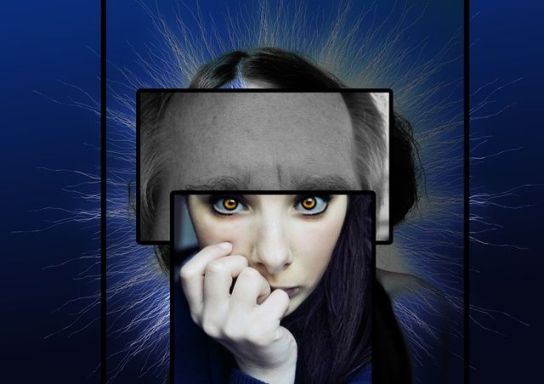Dissociative Identity Disorder: How to recognize DID
The dissociative identity disorder (DID) or multiple personality disorder (MPD) is defined as an identity disorder by the presence of two or more different personality states that even can not know or have different abilities.
This disorder is characterized by alterations in memory (episodes of amnesia), behavior, awareness and perception of the environment. The film ‘Split’ personalities of its protagonist have given visibility to this disorder, less frequent and less investigated than other disorders of the mind, although literature and cinema had already created characters whose diagnosis would fit perfectly, like the mythical doctor Jekyll and Mister Hyde.
Table of Contents
Characteristics of dissociative identity disorder
According to the DSM-5 (Diagnostic and Statistical Manual of Mental Disorders), the latest edition of the statistical manual and diagnostic of mental disorders of the American Psychiatric Association, the characteristics of dissociative identity disorder are:
- Each personality is lived as a personal history, an identity and even a different name.
- In general, a primary identity is presented with the name of the person, which is characterized by passive, dependent. Alternating identities, on the other hand, have different names and features that contrast with primary identity (for example, if the first one is efficient, the others may be dominant, self-destructive).
- The person with multiple personality can assume identities that differ in age, sex, general knowledge, vocabulary and mood.
- Different identities may deny to knowing each other, be critical of others and enter into open conflict.
- According to experts in psychology, there may be up to a hundred personalities, although it is rare that there are more than ten.
Symptoms of Dissociative Identity Disorder
- Slips of memory that interfere in the personal history, both recent and remote memory.
- People with this disorder may have post-traumatic symptoms, such as nightmares, startles…
- The person is especially vulnerable to anything that can provoke suggestion.
- Show unusual abilities to withstand pain and other physical symptoms.
- Impulsivity and sudden changes in social and personal relationships.
- The disorder is not due to the physiological effects of substance use (alcohol, drugs …) or to a medical condition.
- Changes of identity occur without notice. A stressful situation can be the trigger to let out a stronger identity.
What causes dissociative identity disorder?
The causes continue to generate many questions, but science has pointed out several theories. Therefore, the main causes that might be at the origin of this identity disorder:
- An event or traumatic experience ( physical and psychological abuse, sexual abuse …) in childhood may be a disorder that tends to be diagnosed in adulthood.
- The repression of unpleasant and painful memories or overwhelmed by emotional stress (for example, after having suffered abandonment in childhood).
